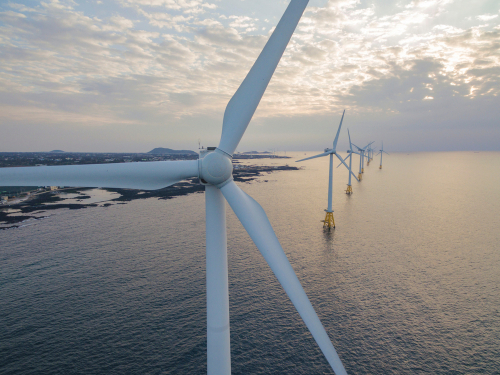
A six-month test of Pyxis Ocean, found that using wind-assisted propulsion technology can achieve performance consistent with the equivalent of three tons of fuel per day on ocean shipping.
Cargill Ocean Transportation, a leading freight-trading organization, revealed the results of the test on Thursday after a test of the MC Shipping Kamsarmax vessel was retrofitted with two WindWings – large solid wind sails developed by BAR Technologies – sailed the Indian Ocean, Pacific Ocean, North and South Atlantic and passed Cape Horn and the Cape of Good Hope between August 2023 and this month. The results of the test underscore the potential for wind-assisted propulsion, officials said, and move the shipping energy toward renewable energy use.
“We are encouraged by the results and have learned a great deal about implementing wind assisted propulsion on dry bulk vessels,” Jan Dieleman, president of Cargill’s Ocean Transportation business, said. “We could never have done this alone – BAR Technologies and MC Shipping and have been fantastic partners in making the Pyxis Ocean a reality as well as the captain and crew. We are on the leading edge of change in the shipping industry and believe technologies that harness the wind could be an important, cost-effective way to achieve our decarbonization goals in the short, medium and long-term.”
The WindWings measure 37.5 meters in height and resemble large airplane wings, officials said. Installed vertically, they catch the wind and move the ship forward, allowing the ship’s engine to be turned down and use less fuel. Controlled by a touch panel on the bridge, a light system tells the crew when to raise or lower the sails. Once raised, the operation of the sails is fully automated with sensors constantly measuring the wind, and the sails self-adjusting for optimal configuration.
“The results of the Pyxis Ocean’s first voyage with WindWings installed clearly demonstrate that wind assisted propulsion can secure significant fuel savings and emissions reduction,” John Cooper, BAR Technologies CEO, said. “For example, in near optimum sailing conditions, during an open sea voyage, the Pyxis Ocean achieved fuel savings of 11 tons per day. And while the Pyxis Ocean has two WindWings, we anticipate the majority of Kamsarmax vessels will carry three wings, further increasing the fuel savings and emissions reductions by a factor of 1.5. With Cargill we are now able to validate our performance predictions and modelling in real-world conditions, it’s an exciting time as we begin to roll out WindWings production globally.”